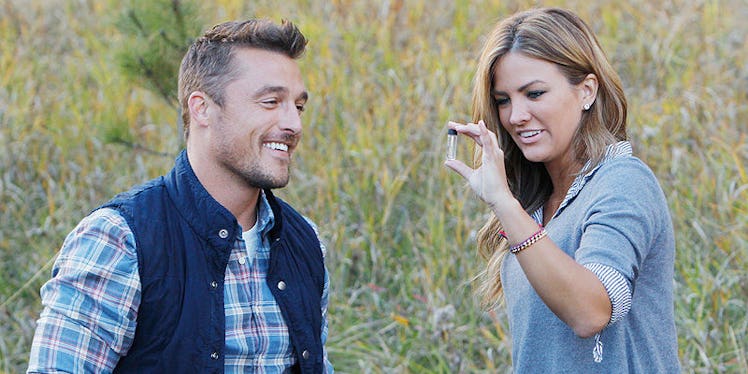
Why Virginity Didn't Deserve The Attention It Got On 'The Bachelor'
Though I'm undoubtedly not the first to say it, "The Bachelor" isn’t the most intellectually stimulating or traditionally romantic television show out there.
But, there’s something about it that keeps people all across America tuning in every Monday night: We hate to love it, and we love to hate it.
The show's most recent season, which featured Iowa farmer Chris Soules, just ended. I’ve watched three seasons of "The Bachelor" and two of "The Bachelorette," but never before have I felt the show emphasize the concept of virginity so much.
Perhaps, it's because, this season, two of the girls who made it relatively far into the competition explicitly admitted to viewers they were virgins.
Ashley Iaconetti, a 26-year-old freelance journalist from New Jersey, and Becca Tilley, a 25-year-old chiropractic assistant from California, both felt strongly about this year’s bachelor, and struggled with the fact they “had to tell him” about being virgins.
The sad thing is, after watching the show, I feel like I know nothing about the girls except that they are virgins.
Whether this is because it's all they talked about, or because the producers decided to edit the footage so as to emphasize the point, there is a big problem here: Society sees virginity as something of which to be relatively ashamed.
Ashley I., who left the show before Becca, spent many-a-night crying over when and how to tell Chris about her virginity.
Another girl on the show, Mackenzie, told Ashley she was “super jealous” of her virgin status, and telling Chris would make him like her even more (as if whether or not someone is a virgin helps dictate a person’s emotions).
After telling Chris, who reacted pretty nonchalantly, Ashley I. felt he was “really freaked out,” so she proceeded into another episode of crying, as if her virginity would scare him away.
Becca’s reveal went a little smoother; as one of the final three girls, she spent a night off-camera in the “fantasy suite” with Chris, and she told him she was virgin after many on-camera interviews that reflected her trepidation about brining it up.
So, ultimately, both girls stressed for no reason because their “big reveal” didn’t seem to affect Chris or his decisions, in any way.
Putting the feelings of Chris, Ashley I. and Becca aside, there is a larger problem with the emphasis on virginity when looking at the audience demographic of "The Bachelor."
The show’s core audience includes women aged between 18-34.
In 2013, The New York Times published an article regarding the show's growth in viewership after a few years in the slumps, reporting the newfound success to be the result of “a push by the producers to attract younger viewers, to use social media to promote 'live' viewing and, by tinkering with the casting and format, to encourage viewers to return for subsequent seasons.”
The important factor for my argument here is the desire to attract younger viewers. While the show may fall under the category of “reality” TV, producers still get to choose what gets aired out of the endless footage, and they chose to show so much footage related to virginity.
It would be easy to cut out half of the time Ashley I. and Becca spent droning on about their inexperience and focus, instead, on who they are, or even other girls’ stories we didn’t hear.
(Anyone even remember Samantha? Probably not because she was shown rarely, even though she made it to the sixth episode.)
So, what is the audience left with after watching an episode?
Thoughts on virginity. Girls 18 years old, or even younger, are watching grown women struggle with the fact they have to tell a guy they’re virgins.
They see women saying they hope their virginity won’t be a “deal-breaker” for Chris, which plants a seed in the minds of teenage girls and young women that there’s something wrong or abnormal about being a virgin.
Now, hopefully most girls are smart enough to know how ridiculous this sounds, that being a virgin could be a “deal-breaker.”
But, when the notion is repeated over, and over, and over again, it starts to resonate.
For future seasons of "The Bachelor" and "The Bachelorette," we can only hope to see a little less emphasis and camera time devoted to discussing virginity, and more to seeing who the girls are as people.
Talk about your job, your passions and your family – because, in all honesty, we don’t care that much about whether or not you’re a virgin.
Hopefully, the way the show broaches this subject will change moving forward.
Instead of focusing on virginity as a possible deal-breaker, we want to see women who are comfortable with the decisions they’ve made, women who know their value has nothing to do with virginity and women who are proud of who they are.